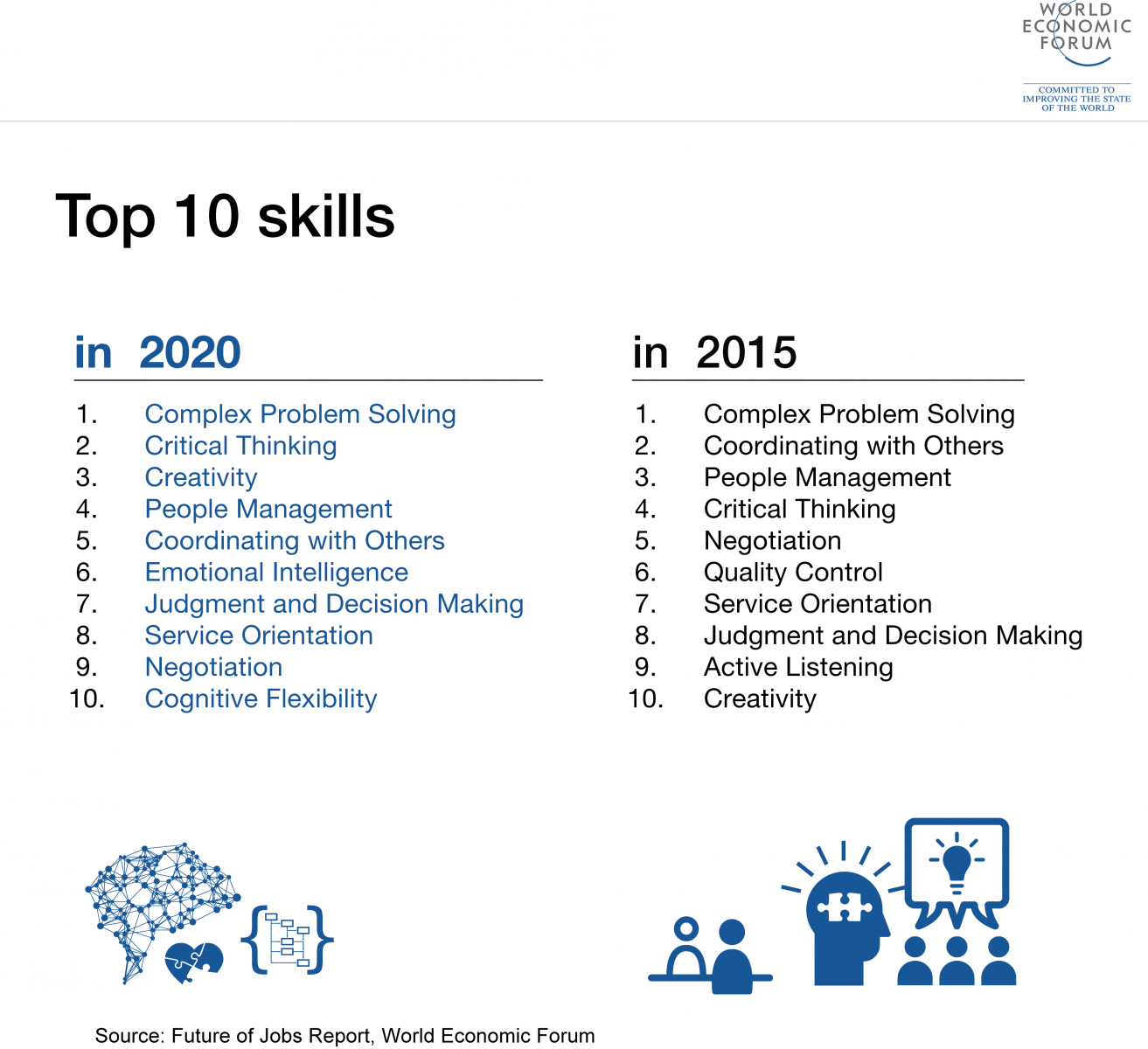AS Bob Dylan once sang, "the times they are a-changing" and technology is changing faster than ever before. It was recently discovered that robots can be as smart as the academics that programme them: “simulated research agents” used algorithms and basic forms of artificial intelligence (AI) to complete some real-life research tasks better than academic researchers. Meanwhile, Smart Technology (like phones, TVs and cars) can interact with their users, and assist in our everyday lives. Technology that can outsmart humans and pre-empt needs is a new step in advance – and many people see it as the beginning of the Fourth Industrial Revolution that will change our workplaces forever.

What is the Fourth Industrial Revolution?
There have been three industrial revolutions so far, which followed the invention of new technologies – steam powered technology in the 1700s, electricity in the 1800s, and IT and automated production in the 1900s. Since the start of the 21st century, technology has been developing incredibly rapidly, with inventions like artificial intelligence, 3D printing, autonomous vehicles, technology and biotechnology. Many think these inventions are the start of the Fourth Industrial Revolution, where humans create things that can think and create for themselves.
How does this affect the job market?
These rapidly developing technologies are changing the way we work, the jobs humans are required for, and therefore the skills required to do them. It is thought that the useful skills in the workplace of 2020 will be different from those needed today. A report by the World Economic Forum entitled Future Jobs Report has outlined these changes:

You can see that whilst skills such a ‘negotiation’ and ‘people management’ are still valued, they are starting to drop in importance, and other skills such as ‘quality control’ have completely dropped off the list (after all, what is more accurate and quality-assured than a machine?).
Below is a look at some of the rising stars of skillsets, and some of the courses you could take to ensure you learn them.
Complex Problem Solving
Say the words ‘problem solving’ and many people would automatically think of mathematics. After all, maths problems are there to find an answer. However, there are two types of problems to solve: closed problems that have a set answer (like algebra) and open problems that could have multiple different solutions. Which do you think is going to be more useful for a workplace?
Courses such as Computer Science and Engineering would be most beneficial to develop practical skills for fixing problems. However, something specific like Management, or even a Marketing or Advertising degree, would help you to assess and solve problems in a team.
Critical Thinking
Thinking critically is about being able to gather information from various resources and objectively assess evidence. Being able to think critically allows a person come to a fully-informed and unbiased decision. A course like Journalism would teach you the skills to question and gather information, whilst Philosophy teaches you to look at things objectively. Science subjects would also be good for learning to compile and analyse evidence.
Emotional Intelligence
Emotional intelligence is a brand new entry on the most desired skills list. It is all about recognising and understanding your own emotions, and the emotions of others around you. Whilst we become more and more reliant on machines, it is important to stay in tune with humans as well. Emotional intelligence used to be something that was associated with spiritualists, religions and couples counselling. Now every good business runs training on it. It is a key skill for creating business relationships and managing others. A degree in Psychology or Drama would be perfect for understanding emotions.
Cognitive Flexibility
Cognitive flexibility is about being able to understand, and switch between, different perspectives, grasp different concepts quickly and understand what other people want, and why. It is already essential for jobs in sectors such as sales and marketing but is also useful in many other fields, such as customer service. Degrees in any marketing-related subject could be useful, but so could subjects like Creative Writing, where you have to understand different perspectives. Aerobic exercise has also been shown to increase cognitive flexibility, so a degree in Dance could also work for you.
Creativity
We’ve looked before at how employable creative degrees are, and this is another bit of proof that they are not ‘soft subjects.’ Graduates from arts subjects, including music, drama and art itself, will do well in the job market of 2020. Business and technology bosses are starting to hire more creative arts graduate because of the transferable skills they can bring to the industry.